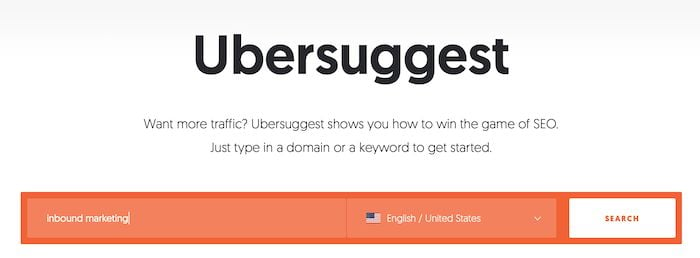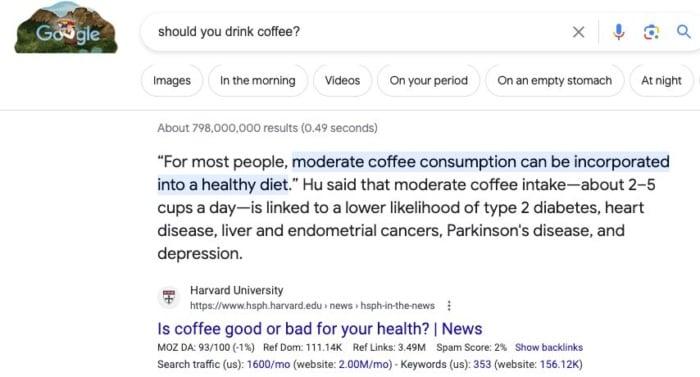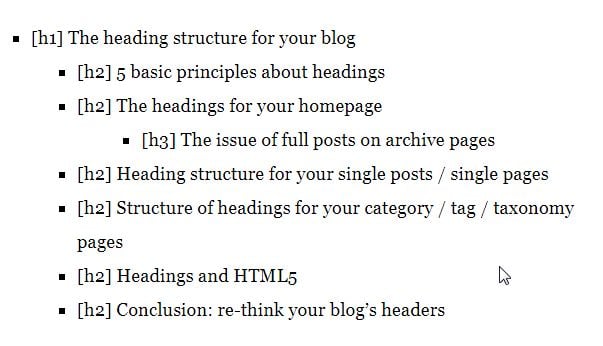Table of Content

Introduction
What Is Keyword Ranking in SEO?

- On average, a keyword is searched around 989 times a month.
- About 14% of search terms are questions like “how to…” or “what is…”
- Most keywords are short—around 2 words long on average.

Why Are SEO Keyword Rankings Important?

Ranking for Multiple Keywords
What Do Sites Ranking for Multiple Keywords Have in Common?
- Have longer content with in-depth information
- Earn more backlinks
- Have a strong domain or URL rating


Data Points to Consider When Selecting SEO Keywords
Search Volume
CPC
- High bids don’t always mean better results—if the return on investment (ROI) is low, you may lose money.
- Low bids might not give your ads enough visibility to reach your target audience.
SEO Difficulty
Paid Difficulty
How to Choose Keywords That Can Get You the Top Spot in Google Keyword Rankings
1. Research and Compile a List of Topics to Cover
2. Plug Your Target Topics Into a Tool Like Ubersuggest


- See how many people search for that keyword each month.
- Discover related keyword ideas.
- Explore the Content Ideas section, which shows you top-performing articles from competitors.
- This information helps you create more focused and effective content.

3. Drill Down Into the Data to Find the Best Keywords for Your Topics
- Search volume – how many times people search for the term each month
- Cost-per-click (CPC) – how much advertisers pay per click for that keyword
- SEO difficulty – how hard it is to rank for that keyword

- Question-based keywords – e.g., “how to choose SEO tools”
- Comparison keywords – e.g., “Ubersuggest vs SEMrush”
- Short phrases – e.g., “SEO software India”

Bonus: Keyword Ranking SEO Tips and Best Practices
1. Optimize for Featured Snippets

2. Use the Primary Keyword Strategically
3. Optimize Meta Descriptions
- To give search engines data regarding the page's topic, including the main keyword that you employ.
- You may boost the number of clicks by including a call to action (CTA), such as "Learn More" or "Get Started."
- Keep it short—ideally, no more than 160 characters—to avoid it from getting compressed in search results.
4. Use Heading Tags

- Use H2 for main section titles
- Use H3 for smaller points under those sections
- This enhances the structure and accessibility of your substance, especially when writing lengthy service pages or blog articles.
5. Streamline Your Page Speed

- Compress large images
- Remove unused plugins or scripts
- Enable browser caching
- Check your speed again after making changes to see how much it has improved.
6. Use Anchor Text With Keywords
- Make use of numerous keyword variations in your anchor text on various pages.
- Repeated use of the same phrase may pass off as spam.
- Keep links clear and natural within the content
In conclusion
FAQs
- Presenting users with exactly what they're looking for by matching their search intent
- Search volume (the frequency of the term's searches)
- Outstanding, practical information
- The number and quality of backlinks that point to your website
- The overall authority (domain strength) of your website
- User experience and page speed
- 20–35 is low difficulty (easier to rank)
- 36–50 is medium difficulty
- 51–65 is high difficulty
- 66+ is very high difficulty (tough to rank)
James Smith, a seasoned Brand Marketing Manager with over six years of experience, excels in crafting and executing strategic marketing initiatives. With a keen understanding of consumer behavior and market trends, he effectively builds and enhances brand identities. James's expertise lies in developing comprehensive marketing strategies that resonate with target audiences, driving engagement and loyalty. His extensive experience and innovative approach make him a valuable asset in achieving brand objectives and driving business growth.
